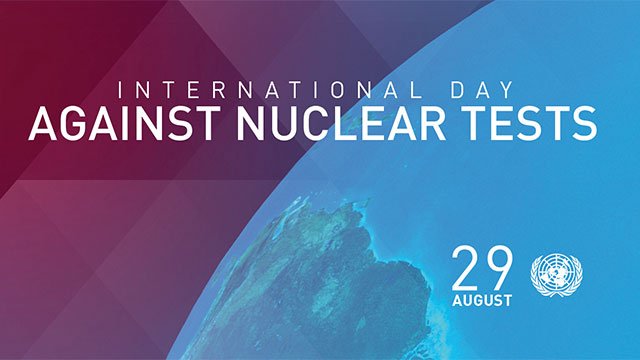AlJarwan calls on to secure the dream of mankind to live in a new, peaceful and secure era on the international cooperation basis
Although countries with nuclear weapons used to be considered as highly developed and military powered countries, little consideration was given to the devastating, terrifying and tragic effects of these nuclear experiments on human life. With time, with what studies and research have proven and with what the world has witnessed from human and environmental tragedies as a result of nuclear tests, it has become necessary to oppose these nuclear tests and work to build a world free of nuclear weapons.
On the initiative of the republic of Kazakhstan, in 2009, with a view of commemorating the closure of the Semipalatinsk nuclear test site on August 29, 1991, the United Nations adopted August 29 as the International Day against Nuclear Tests to raise awareness and educate the world about the effects of test explosions of nuclear weapons and the need of their cessation.
2010 marked the inaugural celebration of the International Day Against Nuclear Tests. In each subsequent year, the world has witnessed distinguished activities such as seminars, conferences, exhibitions, competitions, publications, lectures, radio broadcasts and other initiatives aimed at raising awareness of the effects of nuclear weapons and the need of their cessation as one of the means of achieving the goal of a nuclear-weapon-free world.
The President of the Global Council for Tolerance and Peace, His Excellency Ahmed bin Mohamed AlJarwan, called on the global community, members of the Council, its parliament and its partners to secure the dream of mankind to live in a new, peaceful and secure era on the international cooperation basis, and to develop and implement an action plan to promote peace, prevent the proliferation of weapons and prevent terrorism.


